Venice Diary #01 - Tár, White Noise, and Princess
 Thursday, September 1, 2022 at 2:21PM
Thursday, September 1, 2022 at 2:21PM by Elisa Giudici
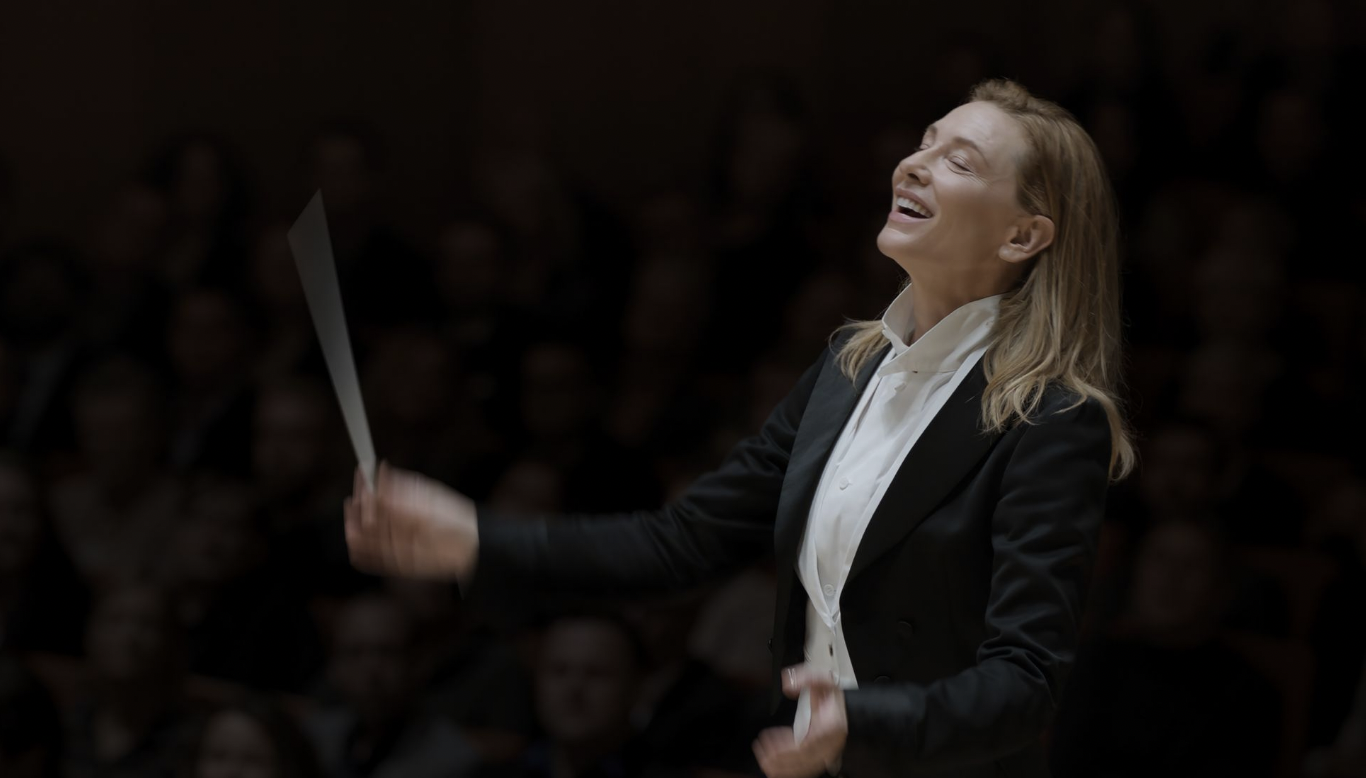
Hello readers! It's Venice time again. As with previous festivals, I'll be reviewing the movies with some festival experience details on the side. I screened three and a half movies (we'll get to the half at the end) in the first Day of the Mostra. Both the official opening night film White Noise and Princess in the Orizzonti section were a bit disappointing though both are far from failures. On the bright side, Cate Blanchett really delivers in Tár.
But first something a little spooky as Venice starts off on the wrong foot. This year Sala Darsena (the main screening room for press and industry) appears to be …cursed? During the screening of White Noise a bat (a real, actual bat!) flew in front of the screen...
Later during the 158 minute running time of Tár the image was interrupted a couple of times by what appeared to be double frames like residual ghost images, the kind you might see if you're trying to watch a 3D film without the glasses. I assure you that Tár is not in 3-D, no matter how dimensional Cate Blanchett's acting. What's more the subtitles disappeared during the parts spoken in German. Spooky!
Okay on to the reviews.
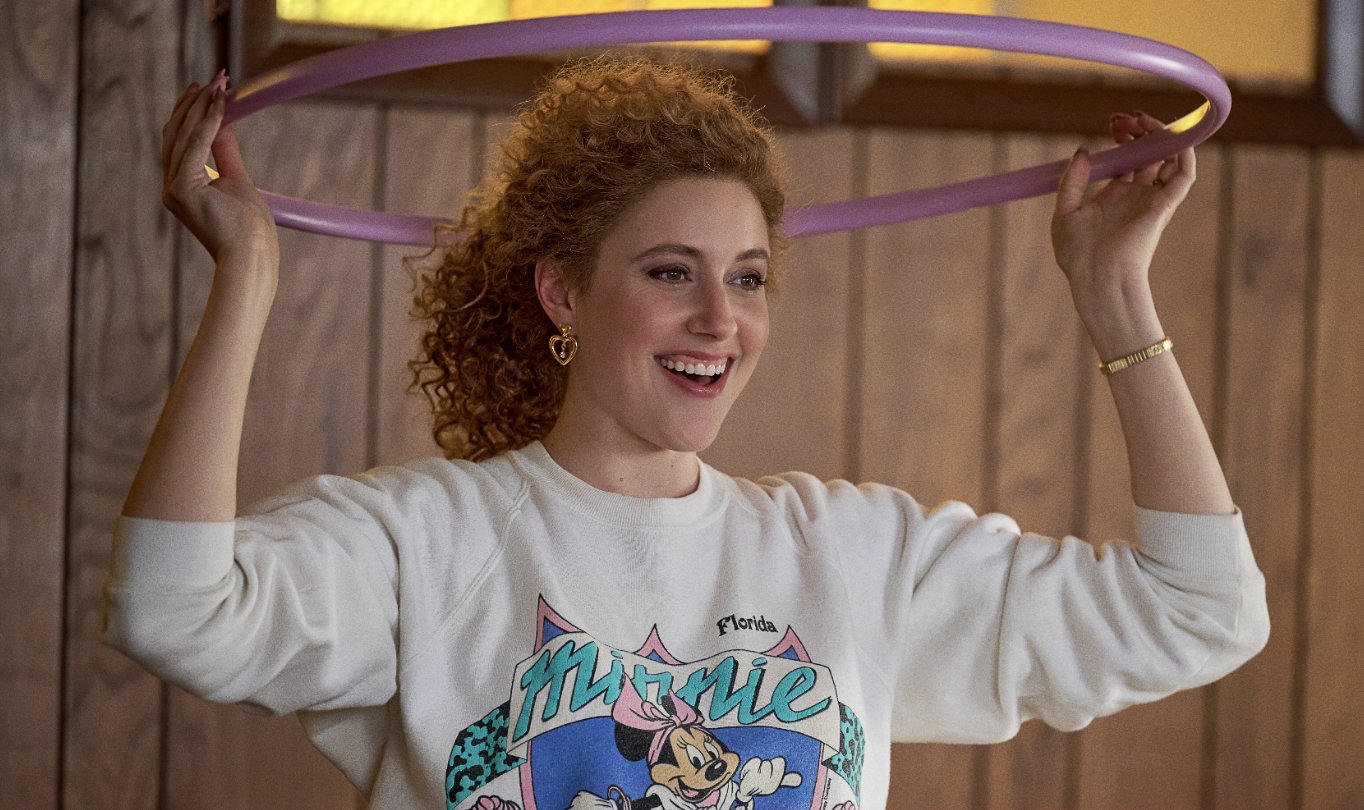
WHITE NOISE (Noah Baumbach, US)
With his latest film, Baumbach steps outside his comfort zone of smallish, indie movies. We're still dealing with intimate relationships of couples, but this time death is on the brain. Jack (Adam Driver) and Babette (Greta Gerwig) keep talking about how will die first, and imagining themselves as old people. Reminders of death are pervasive and omnipresent... become like, you guessed it, white noise. Adapting any Don De Lillo’ novel would be a challenge and that's definitely the case with White Noise. Baumbach, who has always been a strong writer, manages the adatpation quite all, all things considered. The largest change is the update/upgrade of the female lead (Greta Gerwig), but there are several cuts and some condensing of events and scenes, all while Baumbach tries to maintain the distinctive way in which De Lillo’s characters act and speak. As a director, Baumbach is out to prove he's more than just a great writer. The camera work is more visibly refined than in his previous films. Baumbach even proves capable of the kind of large scale setpieces he hasn't tried before, such as one here wherein a truck crashes against a train, causing an “airborne toxic event”. That sequence is a major turning point of the story and a powerful reminder that death is always around the corner.
Adam Driver in the leading role always feels believable in both his actions and dialogues, even when the eccentricity of De Lillo's novel turns Baumbach’s adaptation into a mock version of a “realistic" story. In a couple of passages, the sensation is like witnessing a very clever idea explained with words, then turned into images and sound that make it improbable. Greta Gerwig, though, struggles to feel “natural” within a movie that's so staged. In the end, while White Noise is more resourceful and ambitious than Baumbach's most recent feature, Marriage Story, it's not as resonant or accessible from an emotional perspective. It is instead focused on ideas: consumerism, capitalism, and traditional marriages within the 1980s.
Baumbach's visual filmmaking is more refined but he's more than a little pleased by his own cleverness. The directorial style of White Noise has some treats for cinephiles who love to be guided both verbally and visually about the protagonist’s feelings and relationships. Sometimes Baumbach is all but showing off -- watch out for the end titles sequence.
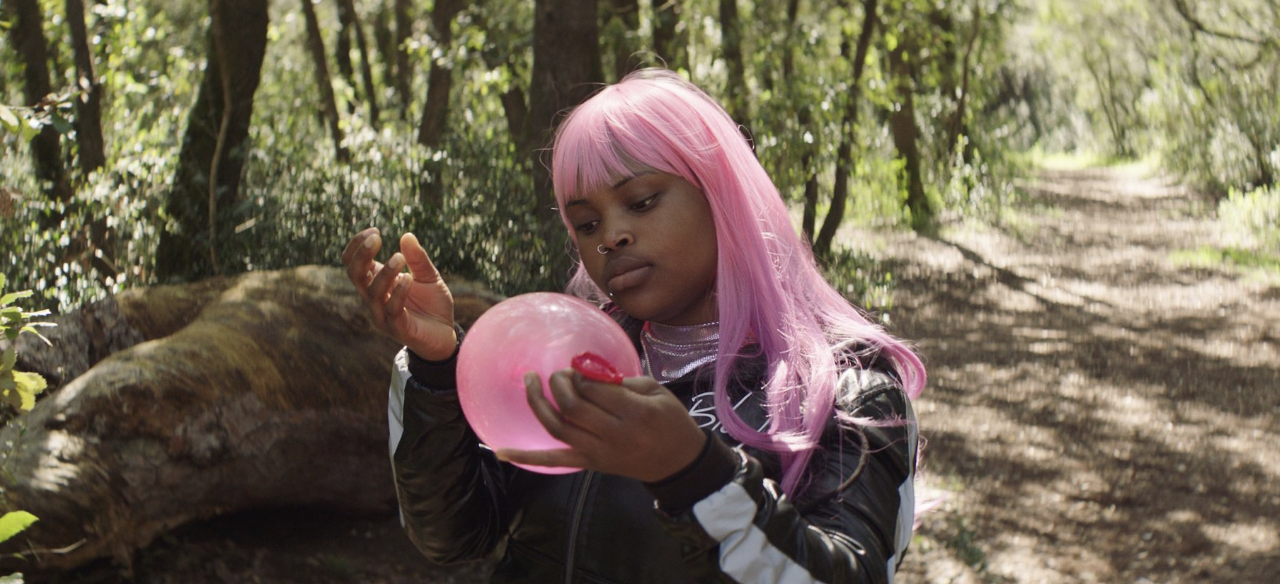
Princess (Roberto de Paolis, Italy)
De Paolis wanted to tell a story about migrants in Europe from their perspective, so he befriended a small group of Nigerian prostitutes working on the streets and in the woods around Rome. One of them, Glory Kevin, he cast as the protagonist and titular character. The movie focuses on the feelings, struggles, emotional detachment, and money-oriented attitude of this young sex worker in Italy. Glory Kevin is a gem but the movie lacks a strong point to make. We get a memorable and depressive gallery of clients that Princess has to deal with: a guy who accompanies their “old man” in the woods to fuck, workers who want to check the softness of her ass like “a sofa before buying it”, guys pretending to pass her by chance in the middle of the wood. Etcetera.
Portraying the lives of a small group of Nigerian prostitutes with actors playing fictionalized versions of themselves is a great start but not a satisfactory end for what is essentially a narrative film. It is almost as if, to avoid any accusation of white-saviourism by external characters, De Paolis struggles to find a way to wrap up the story. Still Princess and her friends are compelling as they try to mainstain a sense of beauty, worthiness, and belonging, while being detached from their home countries and families in a nation where they hide as irregulars. All in all this is the same feeling I had after seeing De Paolis previous film, Cuori Puri, but for what it's worth other critics have spoken much more highly of his work.
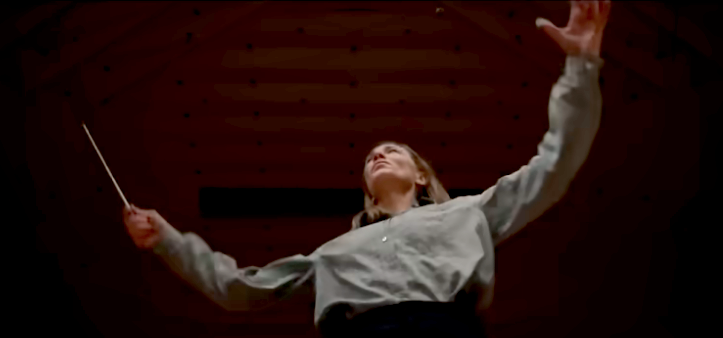
TÁR (Todd Field, US)
How lucky is Cate Blanchett to be presented with such a layered, complex, contradictory, and shaded character by a director who has written a 158 minutes long movie while thinking about her as the main protagonist? Blanchett deserves this, of course, and repays Field with a stellar performance. She's a brilliant orchestra conductor and sophisticated sharp thinker. She isn't always what she projects at first glance, but sometimes quite the opposite. In short, Lydia Tàr is many things simultaneously. While Cate is phenomenal, Noemi Merlant and Nina Hoss are amazing too, in supporting roles. The things these two can say to Lydia and the audience with a single, intense glance!
In addition to being a challenging character study and a think piece about female professionals and the capitalistic, misogynistic world in which they operate, Tár is also a movie about political correctness and cancel culture. At first it doesn’t urge us to take a side hoping to overcome the simplistic approach of “with it or against it” for a more insightful vision of cultural change. While it's doing all of this it's also an expansive, technical portrayal of the highly specialized world of contemporary classical music, both elitist and bourgeois. And then there's the structure. The first hour is almost a mockumentary about this fictitious conductor before the movie starts to unveil its true intentions and begins a more thrilling, suspenseful approach. \
In short, The only thing that stands between Cate and yet another Oscar is how demanding Field’s movie will be for audiences.
The point is not to put more women in heroic roles. It is to produce, write and direct movies that prove how a woman can be anything. She can even be both a victim and a perpetrator, wrong and right in a complex narrative that's all about her.
And finally the half movie...
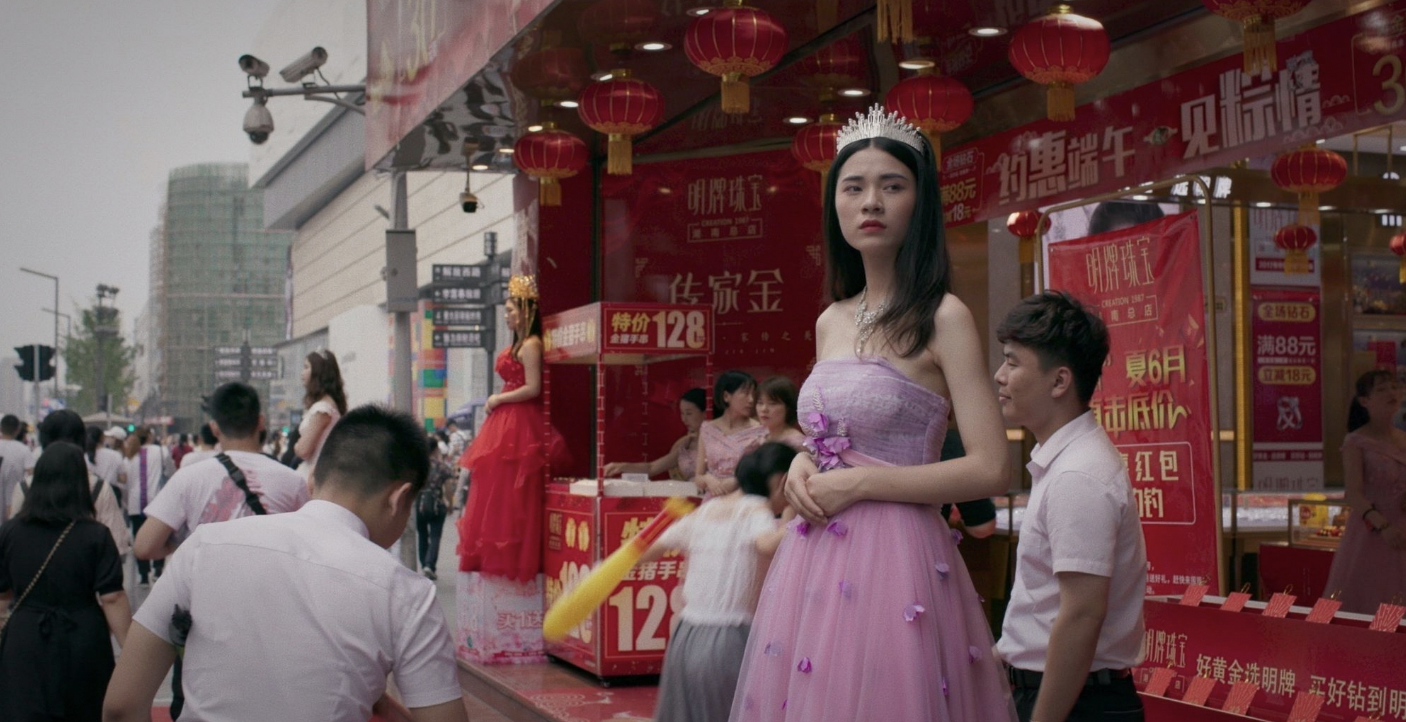
Stonewalling (Huang Ji & Ryûji Otsuka, China)
While Venice audiences are generally committed Stonewalling lost audiences members quickly, failing to provide any point of interest. It is not just slow in introducing the main subject (abortion in China after the ending of the one-child policy) but dull and aimless. The emotionally heavy scenes focusing on the protagonist's unwanted pregnancy, both as a personal problem and a possible solution to her debts (she could sell the baby?) take up the same amount of space in the movie as tedious shots of her descending stairs, walking the streets, and just doing nothing in particular. The incapacity of prioritizing the shots by importance (or at least creating a distinctive atmosphere with the less narrative driven scenes) are deadly and give off amateurish vibes. Nearly one-third of the audience had vanished after the first hour. I lasted roughly half an hour more though there was still one full hour to go.
More tomorrow!



Reader Comments (5)
Blanchett in Tar feels like she's going to be one of those "passion" contenders who could slip into the final Oscar lineup with or without precursor support or even much box office.
I'm hearing great things about Tar as I really need to watch In the Bedroom while I'm glad there's good notices for White Noise as I hope this film is better than... ugh... Cosmopolis which I still think is David Cronenberg's worst film.
It sounds like patience is needed but Cate's an Oscar darling so she always has a chance.
not so much off topic but Bardo is heavily flopping critically...
This interesting mini-review of TÁR came from Paul Schrader from his social media post. I thought I'd share it here. I find it interesting to read multiple points of view of a film. The more polarising, the more it gets my interest. I did not do any editing on his typos.
"TAR, shown in Venice today, is an astonishment. Todd Field’s film centers around the conductor of the Berlin philharmonic and her mostly female coterie of coworkers. For an two hours it is fierce, bold and insightful, knowledgeable both about corporate music organizations and the subtlety of making great music—lead by a mesmerizing performance by Cate Blanchard. Then in the last thirty minutes veers into mediocrity and simplicity leaving one in awe of Cate’s talent all the white scratching one’s head. It lead to more troubling question as well. What if this had been the story of James Levine instead of Lydia Tar? Could that story have been told?"